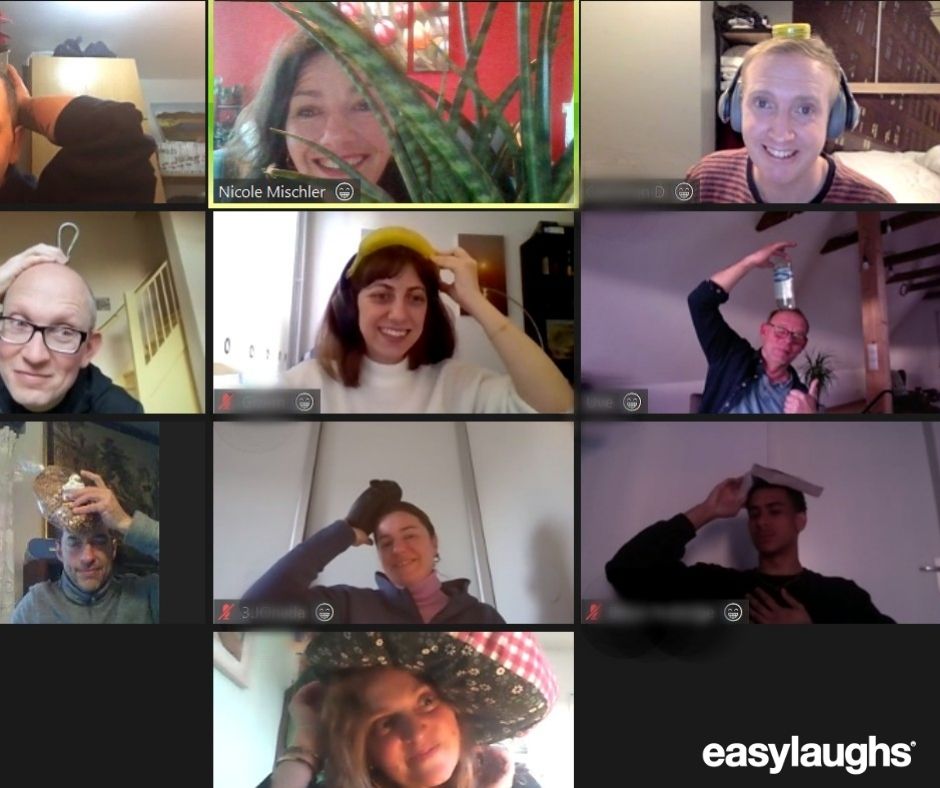Why You Shouldn't Try to Be Funny
- Nicole Mischler
- Apr 19, 2021
- 3 min read
Updated: May 10, 2021
easylaughs player Nicole Mischler writes about why it's okay to be less comedic in improv comedy.
Your first improv class. Your first improv workshop. Your first improv rehearsal. Your first time on stage. Exciting, nerve-wracking, adrenaline rushing through your veins. How will you get through it? What if you don’t know what to do? What if you don’t know what to say? What if you are not funny enough?These thoughts and feelings have gone through the heart and head of every performer who has ever taken an improv class, who has ever stood onstage for an improv performance and waited for the lights to come up.
If you have had these thoughts and feelings, I have good news for you and I have even better news for you. The good news is that it is perfectly normal to be nervous. It is good to be nervous, nervous gives you a rush of adrenaline that will sharpen your senses and ensure that your performance is strong and daring. Take a deep breath and welcome the jitters for what they are- your body making sure that you will get through this alive!
The better news is that you don’t have to be funny. The even better news, you shouldn’t try to be funny.
This might be surprising news. Many people associate improvisation with comedy and many people associate improvisation with stand-up comedy. In order to understand why you shouldn’t try to be funny in improv it is important to understand where the comedy in improv and stand-up comes from.

The most important difference between stand-up comedy and improv is that stand-up is usually written and rehearsed. There IS a great pressure to be funny in stand-up but there is no pressure to make it up on the spot. Most stand-up comedians spend a considerable amount of time crafting their jokes and practising the expression, timing, intensity.
Improvisation is however very often associated with comedy, it is often described as such “improvisation comedy.”
However improvisation at its roots originated in rehearsal form as a means of finding ways to connect to a written text. In these rehearsals the players often found themselves laughing and lo and behold a new art form was discovered. Improvisation doesn’t have to be funny to be interesting but it often IS funny for one reason. That reason is: surprise. (*Note- of course there are probably a million reasons why improv is often funny, but that’s the topic for another article!)
The simple formula is that if you have two people onstage with no written text, making it up as they go along, at some point, someone is going to say or do something unexpected that will surprise themselves, their scene partner and the audience. Continuing the simple formula, when people are surprised by something unexpected, they laugh.
Hence, improv equals surprise and surprise equals funny.Therefore in order to be funny in improv, you don’t need to be funny. You don’t need to try to be funny.
You do need to be there, in the moment. You do need to be listening to your partner so that you can give an honest reaction to what they are giving you. You do need to be open to your own impulses, ready to give your partner all that you’ve got, your thoughts, your emotions, your passion.
When I teach an improv class, I teach my students to make offers from their hearts, from their passions, from their observations on life right in front of them. I teach them to listen and be present. I teach them to follow their impulses and trust in their own creativity. I teach them these things so they can allow the funny to happen. I never teach them to be funny.
In addition to putting a lot of pressure on the performer, trying to be funny often results in blocking. Saying no or making the other person will make people laugh because it is shocking and surprising. Unfortunately this kind of behaviour immediately kills the scene and prevents the scene from being anything except a cheap laugh. The audience might laugh, but they won’t come back to see another improv show, this kind of comedy is too superficial.

If you are not trying to be funny, you allow all kinds of scenes to happen, funny, tragic, epic, thoughtful, absurd. If you want to be a great improv performer, don’t try to be funny. Imagine having to BE funny. Nothing could be harder and who wants to do something hard when they are supposed to be having fun? Instead, focus on good playing skills, be there with your partner and play as hard as you can. You will enjoy yourself a whole lot more.
You will be surprised, your partner will be surprised and the audience will be surprised. They will laugh, they will cry, they will remember your scene and they will always come back for more.





